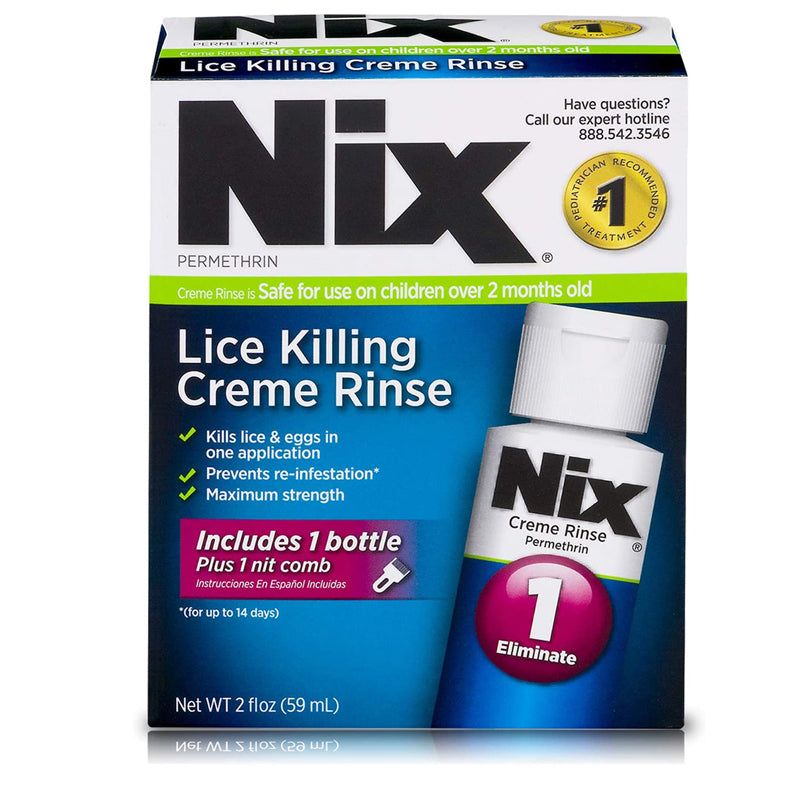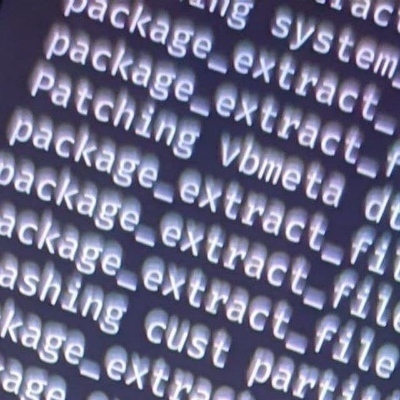I’d been hearing a lot about NixOS so I did a VM install. It wanted me to setup my own partitions manually without even giving preset sane defaults like I was back in 1994 installing Slackware.
Nope. My OS is a tool, not a lifestyle.
There is a Gnome/KDE installer too now ;)
This is the opposite of me. I always get nervous when I don’t have precise control over how the disk layout looks. I explicitly decided for the non-graphical installer when I first downloaded NixOS
My OS is also a tool!
Those jerk OSs and their bullying!
I need to compile my kernel… by hand with tools from beige-age computing.
So? If that’s too much for you, use Chrome OS
Sounds like you haven’t done it in a while. It has calamares installer now.
How long ago did you try? You should try again, I did not have this experience setting up with the graphical installer a few weeks ago.
Slackware still does that in 2024.
You can even still launch Slackware from DOS!
The obvious sane default is 1 partition covering the whole disk, + EFI system partition. What’s there to offer…
Encryption? Also you’re assuming there’s only one block device…
assuming the person before did not just mean partitioning, but also all other storage-related tasks
I mean, if we’re talking sane you shouldn’t need more than one partition.
it wanted me to setup my own partitions manually
You’ve obviously never used nix, it’s GUI installer can auto configure just fine.
When your OS AND apps are declared and stateful a lot of risk and complexity is removed. Configuring is just a bad experience with poor usability and worse documentation.
Where do you draw the line though between tool and lifestyle? At setting up partitions (which is a trivial thing I would not mind at all)?
NixOS is cool, the whole Linux configuration in one file is convenient but I already found my home and comfort place that’s Arch btw don’t think I switch to other distro anytime soon
Just to clarify, I wouldn’t recommend putting everything in a single file, but rather modularize the configuration.
I also came from Arch, but have since abandoned it, and I don’t think I want to use distributions for myself that use the the classic imperative concept. One you get a better understanding of it, it makes so much more sense.
As someone who has never tried Linux, this meme has done more to make me want to give it a try than anything else Linux users have thrown at me so far. The fox is very convincing. I might step into the back of an unmarked van if it asked me to.
I’m running openSUSE because I like lizards.
NixOS is probably a bit more confusing than most Linux distros, but it has a huge amount of advantages too. It has very up to date software and probably never has dependency issues.
That’s par for the course for me. I’m the type that’ll start a video game on the hardest difficulty for a challenge and then my pride won’t let me lower the difficulty so I just quit under the guise of disliking it.
Then you probably shouldn’t use Nix. Maybe try another distro if you haven’t already.
It’s too late, his pride won’t let him go any other distro.
Give him GUIX instead.
Foxes are like that though.
They look cute and cuddly… The trustworthy kind, then they bite your hand off and laugh at you.
Some of them are on fire too!
(That’s why I browse with Emacs; much safer, and RMS-approved)
I actually got NixOS after the latest time I tried it. But I also got that I don’t want it, Arch is much simpler in all the good ways.
And perhaps something like https://github.com/kiviktnm/decman can some day give us part of Nix’s power without going all-in with the functional declarative thingamadoodle.
Wow thanks I was wondering for a while if something like this existed! I’m very happy with regular Arch, but I am very curious to try both an immutable/atomic and a declarative distro. At least the second I guess I can kina replicate now with this. Another rabbit hole to go down I think. :D
I’d recommend trying out a Fedora Atomic distro. Similar idea but without the extremely niche DSL.
Which one specifically? Pure Fedora or something like universal blue?
Depends on your priorities and DE preference. I’m using it as a baremetal hypervisor so, stability and maturity are my priorities. This made Silverblue my choice. If you want KDE, Kinoite would be a good place to start.
I mean, it’s like a fucking drug. The learning curve is steep AF but past some point, when it starts making sense, it’s just incredible. I’m currently moving my whole setup to NixOS and I’m in love.
Even when using in a basic way, I think it has one very tangible advantage: the fact that you can “compartmentalize” different aspects of your configuration.
Let’s say I set up a specific web service that I want to put behind a reverse proxy, and it uses a specific folder that doesn’t exist yet, like Navidrome which is a web-based audio player. It requires a set of adjustments of different system parts. My nix file for it looks like this:
{ config, ... }: let domain = "music." + toString config.networking.domain; in { services.navidrome = { enable = true; settings = { Address = "127.0.0.1"; Port = 4533; MusicFolder = "/srv/music"; BaseUrl = "https://" + domain; EnableSharing = true; Prometheus.Enabled = true; LogLevel = "debug"; ReverseProxyWhitelist = "127.0.0.1/32"; }; }; services.nginx = { upstreams = { navidrome = { servers = { "127.0.0.1:${toString config.services.navidrome.settings.Port}" = {}; }; }; }; }; services.nginx.virtualHosts."${domain}" = { onlySSL = true; useACMEHost = config.networking.domain; extraConfig = '' include ${./authelia/server.conf}; ''; locations."/" = { proxyPass = "http://navidrome"; recommendedProxySettings = false; extraConfig = '' include ${./authelia/proxy.conf}; include ${./authelia/location.conf}; ''; }; }; systemd.tmpfiles.settings."navidrome-music-dir"."${toString config.services.navidrome.settings.MusicFolder}" = { d = { user = "laser"; mode = "0755"; }; }; systemd.services.navidrome.serviceConfig.BindReadOnlyPaths = ["/run/systemd/resolve/stub-resolv.conf"]; security.acme.certs."${config.networking.domain}".extraDomainNames = [ "${domain}" ]; }All settings related to the service are contained in a single file. Don’t want it anymore? Comment it out from my main configuration (or whereever it’s imported from) and most traces of it are gone, the exception being the folder that was created using
systemd.tmpfiles. No manually deleting the link from sites-available or editing the list of domains for my certificate. The next generation will look like the service never existed.And in my configuration, at least the port could be changed and everything would still work – I guess there is room for improvement, but this does what I want pretty well.
They’re not in a single file though, you got includes
Technically correct, but the settings in there are not service specific. However, if there’s something worthy of reworking it’s probably the Authelia part
Hey this is a great web server example! Instead of commenting it out to enable or disable you can actually turn it into a full module. Check out this example of a nix module. Basically, you can take your code you pasted and put it under the config set. Then create an option to enable that set of code. Now you can always have this nix file imported, but enable the option only when you need it with another declaration. Really, that’s how all the declarations work you’re just getting the nix files from github and nixpkgs.
Thanks for the answer; I do have at least one module in my config, but usually, I don’t enable or disable services like that, it was more of an example of how the configuration is split up and what the advantage of that is. In the end, if the only option is to enable the module, you’re not gaining that much if you need to import and enable it instead of just importing the configuration straight is my opinion.
Love the example here!
I’m still learning about available references (ex
config.services.navidrome.settings.Port). What resources did you find to be the best for learning that kind of thing?I’ll accept RTFM if that’s applicable :)
Well, a lot of it is just trying stuff out, but let’s say you want to setup Navidrome because you read about it somewhere. My first step is always to go to https://search.nixos.org/options? and search for it, it’ll show you the options available. If you want to know how it’s implemented under the hood, press the “Declared in” link where it shows you the source code of the module, this can sometimes be helpful.
Other than that, read the wiki for examples, and remember that nix is a full language and not just a configuration, so you can keep it flexible.
Use nix repl! That stands for Read Eval Print Loop. You can evaluate a nix expression and see all the attributes inside. For example, on a non-flake system, use
:l <nixpkgs/nixos>inside the repl to load the current system. Then you can hit the tab key to show whats inside of the current attribute set, make sure you have a . at the end. Then you can press enter to evaluate and see the declaration. For example when you set networking.hostName in configuration.nix you can actually find it under options.networking.hostName.value evaluating that in the repl.Amazing! I’ve used that before but just to look for packages offline. I’ll definitely check that out.
I prefer Debian, my favourite distro by far
cool
Based
Yes. And I feel sad because I haven’t been excited on any other OS for years after learning NixOS. I used to be excited about playing with things like FreeBSD, but now they all feel like something’s missing…
Not for everybody, but as a software engineer nix/nixos is blessing.
Its especially annoying for me because i wanna go back to something that “just works” but i miss the nix features. I like declaring my system but managing packages declaratively is just such a pain. I just wanna do apt-get install package its just easier i dont want to rebuild my whole ass system. Something i found that may work is using nix for the system and then distrobox for packages. Yall think thats something that would work well?
Can’t you just do the package install via nix-env rather than the config file
Separate your system and user lists. Use home-manager for example for your user packages. I think separating those configs is the official recommendation.
As for the rest, I’m using nix on MX because of declarative package management. Screw going back to imperative and having to remember what packages to install. If it’s something I use often it goes on a list, if I don’t
nix shellcomes to the rescue.I’d rather mess around with dev envs for nix than distrobox.
Just install it to your profile
Same, I could not go back now.
Alternative text: Firefox overcoming Chrome
Fuck yes, I would follow that fox wherever needed!
as a fox myself, i would not recommend it.
Hmmm, how can you type then?
Suspicious!
i am sneaky fox, i break into your house, i steal your keyboard, and then i shitpost on lemmy, steal your pasta, and then leave unbeknownst to you.
they using the tongue
👁️🫦👁️
I tried it, and while I was really excited about its proposition, it felt like at times any prior knowledge of Linux was a bit wasted. I also had some significant problems with needing to pin packages.
I don’t doubt that it’s a great option for many, if you’ve got the time to learn it. I’m finding myself in the position where I stick my flag to one distro and keep it there for as long as it doesn’t piss me off.
Yeah. I had a similar experience. My first successful install, following the docs, didn’t have a network stack. It turns out that the docs are not representative of what’s considered best practices at this point. I also don’t care for needing a new DSL for a single use case.
So, for me, it’s a non-starter. Fedora Atomic is meeting my needs nicely at this point. NixOS has brought some excellent ideas to the forefront and is a great match for some people. I’ll pass until I can use my JSON/YAML/TOML and the docs are useable.
Don’t listen to him! Just start using Nix to manage dependencies and dev environments for your projects but keep your OS the same until you are really good at Nix
Yeah, you want to sniff nix first before you mainline nixos.
Nah, best way to learn is to fuck your shit up until you fucked it back into a usable state
Yeah, you want to sniff nix
MMMMH, lice killing cream 🤤🤤

How does that work? Let’s say I’m on pop os developing a thing, how would I manage deps and dev envs with nix then? In a VM or what?
I’m a Linux nerd, but I totally don’t get nix. Tried to install some nix package manager on my Debian based distro and it was completely broken (the nix thing, not my os)
I um… didn’t get started yet. But a colleague demoed it to my and it’s kind of between virtual environments and containers, if you’re familiar with Python.
You write a Nix config and specify exactly which versions of which package you want to have. Reproducibility is the main selling point of Nix. Things don’t just break overnight because a dependency of a dependency of a dependency got upgraded. You can always go back to exactly what it was like before. Guaranteed. That’s pretty cool.
Ok so you got that config, then you build and activate it, and it replaces your shell. You enter the Nix shell. You still have access to all your files and directories, but your Nix config controls exactly which versions of your tools you have. gcc, npm, python, maven, whatever you use.
You can see why this makes people want to build an immutable OS.
The main drawback of Nix is that it has a bit of a learning curve. Hence why I haven’t started yet. Maybe it’s time though.
Last I heard they were having this huge governance drama. They fix that yet? Or…
Not really, other than banning those who disagreed publicly
Most definietly, I have my entire homelab setup in nix as well as laptop/desktop. Is a hell of a lot easier and more reliable than the Kubernetes setup it replaced…
Damn you broke my brain for a second there. I thought you meant that nixos replaced k8s, and was wondering what the hell are you talking about.
Haha yeah could have worded better. I was running a 3 node k8s cluster on Talos Linux as my homelab. Downsized/simplified to a single NAS (aka NixNAS) + NUC on nixos and split the services between them. Apps that heavily use the NAS live on it for direct file access, the rest hum along on the nuc. I sleep easier with this, rather than fighting nose breakage during upgrades or wondering when my next ceph failure will occur.
Meanwhile in Europe:
ZigBee go bzzzzz
Good idea, bad DSL and toxic community.
yes, and its best








